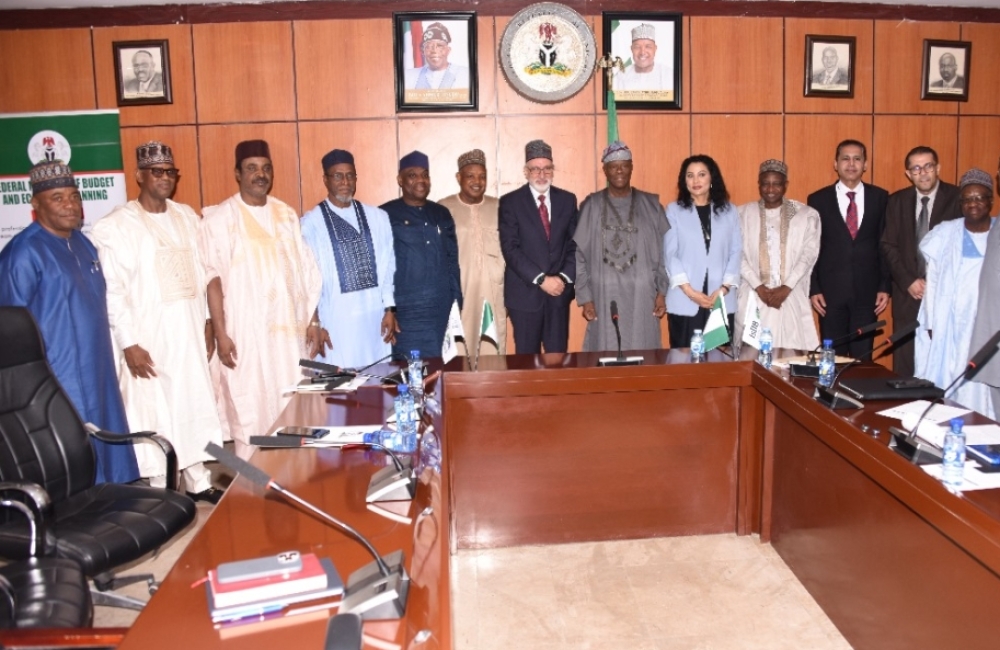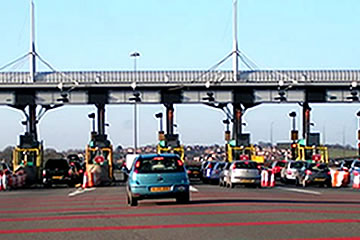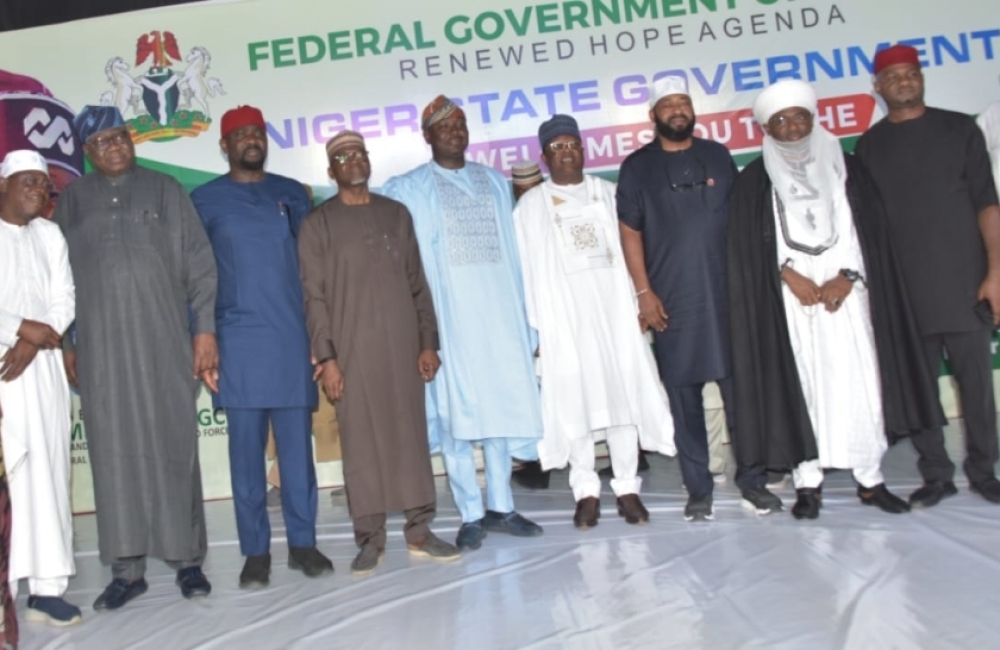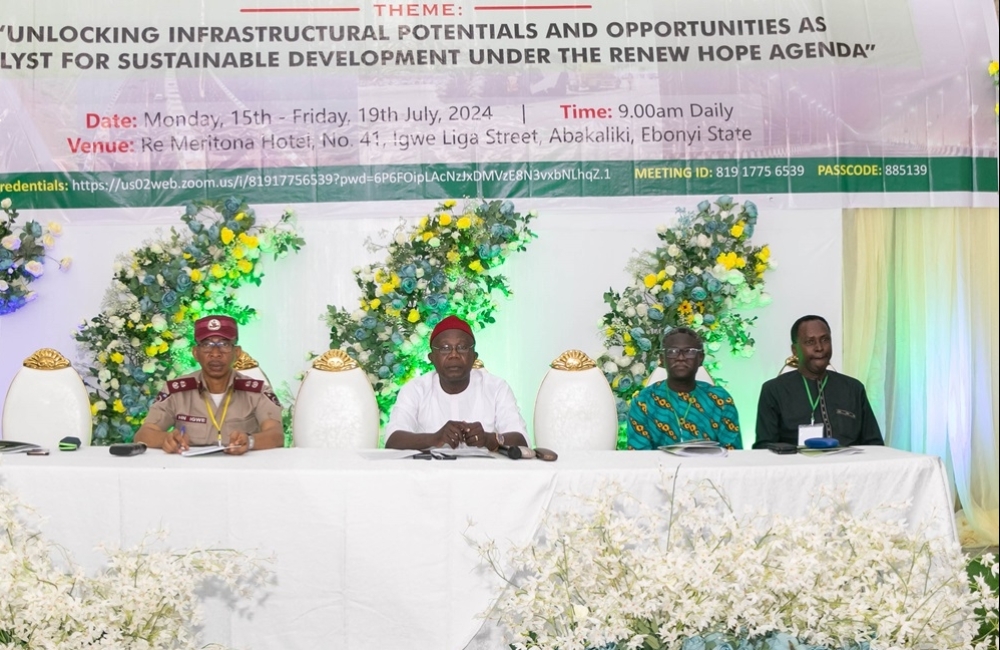
NIGERIA MOVES TO UNLOCK TRANSFORMATIVE INFRASTRUCTURE AND GROWTH WITH GLOBAL PARTNERS
The Federal Government of Nigeria has reaffirmed its commitment to strengthening collaboration with the Islamic Development Bank (IsDB) to deliver transformative development projects across priority sectors, particularly infrastructure. This came during a high-level meeting with the Vice President of the Bank, relevant stakeholders, held in Abuja and hosted by the Honourable Minister of Finance and Coordinating Minister of the Economy, Mr. Wale Edun at the Ministry’s conference room, today, 1st september, 2025.
In his remarks, The Honourable Minister of Finance, Wale Edun welcomed the IsDB delegation, describing the Bank as a steadfast ally in Nigeria’s development journey since 2005.“Your visit marks a significant moment in our shared journey of partnership, progress, and purpose. Despite fiscal constraints, Nigeria has continued to honor its obligations, and we deeply value the Bank’s flexibility in aligning with our realities,” he said.
The Minister noted the success of IsDB interventions across education, healthcare, infrastructure, agriculture, and innovation, stressing that these projects are “lifelines for communities, engines of growth, and symbols of hope.” He underscored the alignment between Nigeria’s bold economic reforms under President Bola Ahmed Tinubu and the IsDB’s 2026–2035 Strategic Framework.
The Honourable Minister of Works, Engr. David Umahi, CON, FNSE, who was represented by the Minister of State for Works, Mohammed Bello Goronyo, Esq, emphasized the administration’s prioritization of road infrastructure under the Renewed Hope Agenda. He highlighted the Ilela–Lagos–Sokoto–Badagry economic corridor, describing it as a strategic lifeline that connects Nigeria to the Niger Republic and other African countries: “This corridor is a vital economic artery that will boost trade, create jobs, and lift communities out of poverty. President Tinubu’s commitment to this project reflects his determination to drive Nigeria’s economic transformation,” he stated.
The Honourable Minister of State also confirmed that construction works have commenced on the Sokoto and Kebbi sections, with Hitech Construction achieving clearance and 25 kilometers of work on the Kebbi axis. Other projects cited included the Lagos–Calabar Coastal Highway, Calabar–Nasarawa–FCT corridor, and the Abuja–Kaduna–Kano Expressway, all of which require additional financing to accelerate delivery.
Responding to issues raised in terms of road infrastructure, the Operations Vice President of the Islamic Development Bank, Dr. Rami M. S. Ahmad, reaffirmed the Bank’s commitment to Nigeria’s infrastructure agenda. He stated that Infrastructure is a core pillar of our strategy, and we work from each country’s own priorities. For the road projects raised today, we will not allow delays to persist; where they can be re-scoped, we will act; where not, we will close them and move forward with new initiatives. The Ilela–Lagos–Sokoto–Badagry corridor and other key projects align with our mandate, and through the Country Engagement Framework, we are ready to accelerate their delivery,” he assured.
In closing, the Honourable Minister of Finance expressed his profound gratitude to the IsDB team for their assurances and reiterated that Nigeria’s ownership and alignment of priorities under the Country’s Engagement Framework. He said, “It is our bank, our sovereignty, our projects, our priorities. Today, my colleagues from Education, Environment, Transportation, Works, Water Resources and Sanitation, and my team from the Ministry of Finance, have given a comprehensive insight into our key priorities and legacy projects. The time has come to move beyond frameworks and concept notes to implementation, beginning with the signing of the Abia State Integrated Infrastructure Development Project,” he affirmed.
The Honourable Minister of State for Finance, Dr. Doris Nkiruka Uzoka-Anite, in her closing remarks, expressed her appreciation for the depth of engagement achieved during the meeting . “This dialogue has enhanced the strength of our partnership and the vast potential that lies ahead. From infrastructure and human capital to Islamic finance and the Nigerian economy, the opportunities for collaboration are both strategic and urgent. As custodians of Nigeria’s public finance, we are committed to deploying every naira transparently, efficiently, and in line with our national priorities,” she stated.
Clement Ezeora
For: Director Press and Public Relations.
2nd September, 2025.
Close





